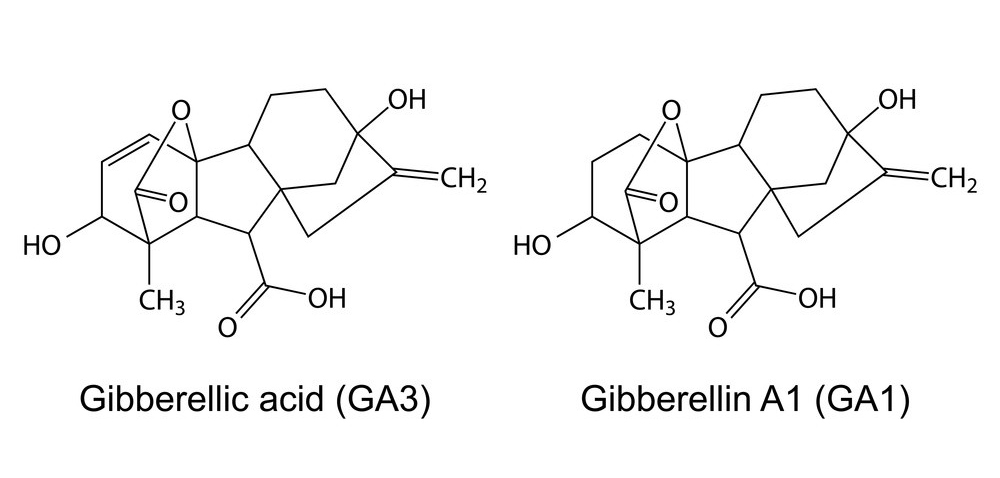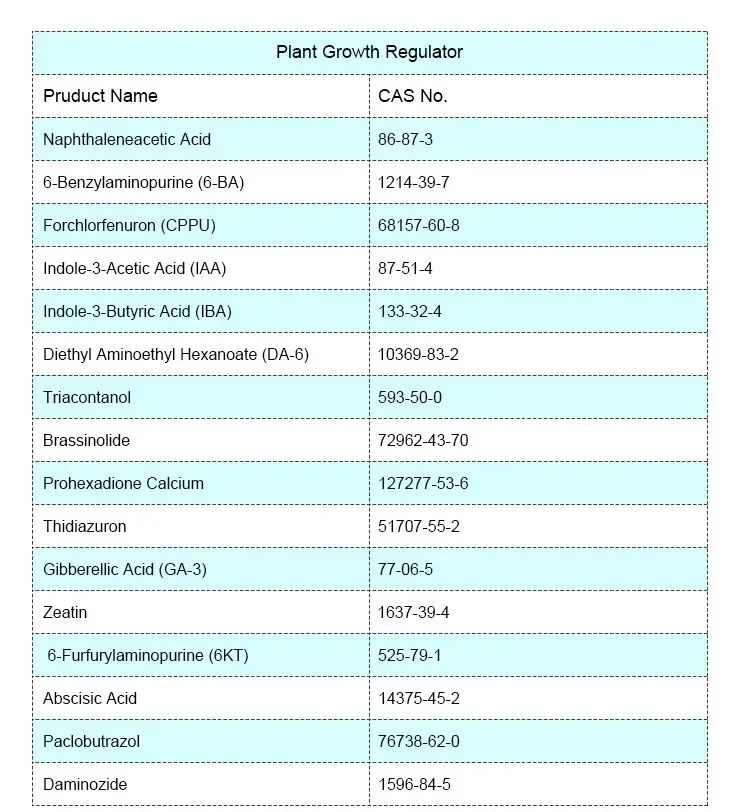Gibberellic Acid (GA) is a plant hormone that plays a crucial role in regulating various physiological processes in plants.
Applications of Gibberellic Acid
1.Seed Germination: Gibberellic Acid is often used to break seed dormancy and promote germination. It stimulates the synthesis of enzymes that help in the breakdown of stored nutrients in the seed, facilitating the emergence of the embryo.
2.Stem Elongation: Gibberellins promote stem elongation by stimulating cell division and elongation. This can be particularly useful in certain crops where increased stem length is desired, such as in horticulture or to prevent lodging in cereal crops.
3.Fruit Growth: Gibberellic Acid is known to enhance fruit growth, especially in seedless varieties. It is used to increase the size of fruits and improve fruit quality in certain crops.
4.Flowering: In some plants, Gibberellic Acid can induce flowering, especially in those that require specific conditions for flowering to occur. It is used to promote off-season flowering in certain ornamental plants.
5.Thinning of Fruits: Gibberellic Acid can be applied to selectively thin out excess fruits, improving fruit size and quality. This is commonly done in apple orchards to ensure that the remaining fruits develop well.

6.Breaking Dormancy in Tubers and Bulbs: Gibberellic Acid is applied to break dormancy in certain tubers and bulbs, promoting sprouting and growth.
7.Delaying Senescence: Gibberellic Acid can delay the senescence (aging) of leaves and fruits, extending the shelf life of harvested produce.
8.Sex Expression in Plants: In some plants with separate male and female flowers, Gibberellic Acid can influence sex expression, promoting the development of female flowers.
It’s important to note that the application of Gibberellic Acid should be done with care and in accordance with recommended doses. Excessive use can lead to unintended consequences, and its application is often specific to the type of plant and desired outcome. Additionally, regulations regarding the use of plant growth regulators, including Gibberellic Acid, may vary in different regions.
Adverse effects of Gibberellic Acid
Gibberellic Acid (GA) is a plant growth regulator commonly used in agriculture to promote various physiological processes in plants. While it is generally considered safe for plants when used in recommended concentrations, there can be potential adverse effects associated with its use. Some of the possible adverse effects of Gibberellic Acid include:
1.Phytotoxicity: Excessive application of Gibberellic Acid can lead to phytotoxicity, causing damage to plant tissues. This may result in symptoms such as leaf burn, discoloration, or necrosis.
2.Increased Susceptibility to Diseases: In some cases, the use of Gibberellic Acid may make plants more susceptible to certain diseases. It can alter the plant’s physiology and create conditions that favor the development of pathogens.

3.Reduced Root Growth: Gibberellic Acid is known to primarily stimulate stem and leaf growth. However, excessive use may lead to reduced root growth, affecting the overall health and stability of the plant.
4.Environmental Impact: The runoff of Gibberellic Acid from treated areas into water bodies may have environmental implications. It can potentially affect aquatic ecosystems and non-target plants.
5.Interference with Flowering and Fruit Set: While Gibberellic Acid is often used to promote flowering and fruiting, improper application or excessive concentrations may lead to irregularities in the timing of flowering and fruit set.
6.Impact on Crop Quality: In some cases, the use of Gibberellic Acid may influence the quality of crops. This could include changes in fruit size, color, or taste.
It’s important for users to follow recommended application rates and guidelines to minimize the risk of adverse effects. Additionally, local regulations and restrictions on the use of Gibberellic Acid should be considered to ensure responsible and safe agricultural practices.
